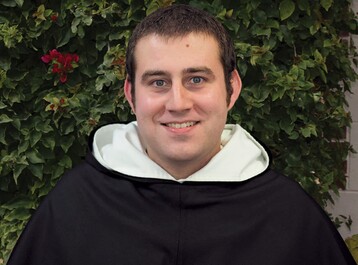I am always deeply moved by Caravaggio’s “The Calling of St Matthew.” If there was anything Caravaggio was good at, it was painting and being a sinner. Caravaggio knew what it was like to be a sinner and a murderer. He knew the depths of darkness that the sinner dwells in and understood that the light of Christ dispels the darkness, expressing as much through his unique painting style.
When viewing the painting, I cannot help but recall the words of the prologue of Saint John: “the true light that gives light to everyone was coming into the world.” Here John reappropriates the story of creation. Both the prologue of John and the book of Genesis begin with: “In the beginning.” Genesis tell us that: “And God said, Let there be light: and there was light.” (1:3) while Saint John speaks about the light of Christ coming into the world.
We see a similar contrast between light and darkness in the painting, which represents the spiritual life which God creates. Matthew was a tax collector, a collaborator, similar to how many French citizens collaborated with their Nazi occupiers. Matthew collaborated with the Roman occupation. In a sense, he betrayed his people and profited from their suffering. He was a sinner, and Caravaggio portrays him in the kind of sleazy establishment he himself was accustomed to frequent.
How did Christ come to Matthew? What did he experience? Caravaggio portrays Christ with one foot in the door with a beam of light coming from him towards Matthew. “And God said, Let there be light: and there was light.” (1:3). Indeed, “the true light that gives light to everyone was coming into the world,” into Matthew’s world.
“Here I am! I stand at the door and knock. If anyone hears my voice and opens the door, I will come in and eat with that person, and they with me.” (Revelation 3:20)
Our Savior stands outside our hearts in some place we do not know. How He got there, we do not know. The God who creates out of nothing comes to us on the borders of our experience and comes into our world out of nothing. He stands there and knocks, with only the echoing of the door resounding inside of our experience, calling us to open our hearts, like the dim rays of dawn as embers in the morning sky.
The call to repentance is gentle, a whisper, do you hear it? We can easily not notice it in the noise in our lives, we can pretend it isn’t there, but we hear it when we are silent. When we are alone with ourselves, we hear the knock. When we do evil, there is a subtle little twinge–is it guilt? No, guilt is from me and this is not from me. Something is present in me that comes from something beyond me and leads me beyond myself, I hear knocking, I see light.
What would happen if we opened the door? What would happen if we opened the door to Our Savior? He tells us: “If anyone hears my voice and opens the door, I will come in and eat with that person, and they with me.” He will come into communion with us, not just any communion, but a wedding feast. Our Savior is the Bridegroom of our soul and we are the spouse. In His light we will see light.

Rev. Br. Joseph Selinger, O.P. | Meet the Brothers in Formation HERE